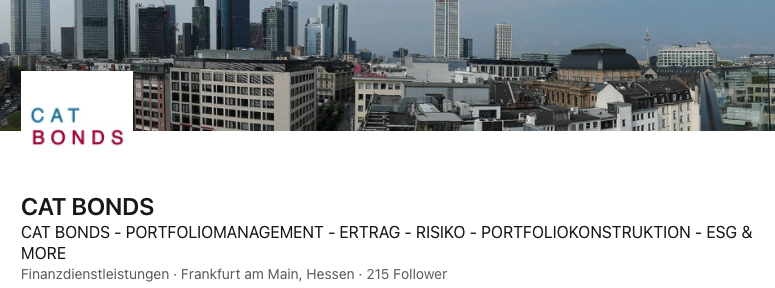According to the Duden dictionary, the term boutique translates as “small store” – some asset managers, which are classified in the category of fund boutiques, would generally not be happy with this title, others would welcome and appreciate it with enthusiasm. In the asset management sector, these agile houses may even represent the “salt in the soup” in an increasingly regulated and synchronized investment world.
For more than 20 years, I have been navigating the landscape of so-called specialty providers in asset management, as fund boutiques (boutiques) might also be called. They are usually characterized by the following:
1. focus on one or a few, usually special asset classes such as private equity, hedge funds, “closed-end funds” / AIF, micro-finance, insurance-linked securities (ILS), or even completely new developments such as crypto assets.
2. Highly specialized portfolio managers and analysts for the respective segments with appropriate market access and know-how.
3. generally increased knowledge requirements for employees in product management, sales, marketing, and IT.
4. especially in the early years, high self-motivation, a special “team spirit” – combined with the knowledge of being able to offer added value to its investors and to work very closely with them.
5. very high continuity in management and employees.

In my view, investors look for and appreciate precisely these special features – even today, despite significantly higher requirements than 20 years ago. Fund boutiques deliver more than plain vanilla and should not be closet indexers: specialization and active (!) fund managers are in demand. Only those who build up and maintain their track record, service, and innovative strength over many years will gain a corresponding reputation in the market.
Challenges – size, costs, and regulation
To what numbers is the term fund boutique tied? There seems to be no fixed limit here – as a benchmark in the AuM area, up to approx. EUR 10 billion can be heard as a boutique area. However: Is one above this mark no longer a boutique, although not much has changed from the above list and claim? I think no.
There are examples in the market that manage very large volumes (greater than EUR 20 billion) and are still described in the market as “familiar”, “responsive” and “highly competent”. A practical example: I know chief economists of meanwhile very large asset managers who still spend the whole day every year at the stand at the Fondskongress in Mannheim and patiently answer questions from every financial advisor, no matter how small. This attitude also explains the difference why other houses have never managed to climb to the next level, some also like to talk about “Champions League”. And that brings us to the dangers or challenges that boutiques face. In an increasingly demanding market, where you not only have to compete against “cheaper” passive fund vehicles, costs in general, especially due to regulation, but are also becoming an ever more decisive factor, or you simply cannot map certain scales compared to the “big” addresses due to a lack of size – that’s where the air becomes thin.
Visibility, digitization, ESG, and personal dialog
And how can fund boutiques become more visible in the market when the Pimcos and BlackRock’s of this world have multi-million dollar marketing budgets with their social media departments that small providers can only dream?
In the wake of the Corona pandemic, many asset managers will have to reposition themselves. Old structures from traditional trade shows, conventions, roadshows, or face-to-face meetings with portfolio managers, relationship managers, and investors will become increasingly “digital”. How much of the “old” days will return after the pandemic is difficult to estimate. It will not return completely. After all, if almost all asset managers are currently integrating ESG criteria into their strategies and business models, and “green” investing is “state of the art,” how can it be justified that thousands of company used car trips or short-haul flights to arrange meetings? Sometimes the impression can arise here that this form of travel activity might be motivated more by thoughts of status or concern for the Senator mileage account.
At this point, the usefulness and importance of face-to-face meetings between asset managers and investors should not be completely denied, but they can and probably will be limited to a few and more efficient forms. It not only reduces the carbon footprint but is also cost-effective. Fund boutiques often have the advantage here that they have structures that have grown over many years and have established a good network that can be managed well “digitally”. The in-person visits, which will be possible again in the future, but reduced, will then be appreciated again.
Outlook
Despite the issues and challenges that smaller asset managers face, I am convinced that they will have a future with the right business model. And it is to be hoped that there will continue to be investors/product selectors who are open to precisely these houses with their approaches. They should continue to be given the opportunities to make decisions outside the mainstream – only in this interplay do we prevent a kind of monoculture in the fund landscape. What is one of the reasons why you enjoy working at a fund boutique? It is the lively exchange with people – the personal contact, the personal decisions that take place “face to face” – fortunately not yet replaced by algorithms!
Holger Leppin has been active in sales in the financial sector since 1994, focusing on asset managers with special themes. From 2000, he helped MPC Capital AG become the market leader in closed-end funds from Switzerland, worked from 2012 for Fisch Asset Management AG in Zurich, which specializes in convertible and corporate bonds, and moved to Plenum Investments AG (insurance-linked securities) in 2020.
LINK to Plenum Investments AG: https://www.plenum.ch/
Related articles:


3 thoughts on “FUND BOUTIQUES & PRIVATE LABEL FUNDS: Discontinued Models or Champions League & Salt in the Soup? (Holger Leppin, Plenum Investments AG)”